

Australia's aid package to the Pacific for the 2025-26 financial year is estimated at AU$2.157 billion (NZ$2.5b), an increase from the 2024-25 estimate.
Photo/RNZ Pacific/Koroi Hawkins
Australia’s Pacific aid scrutinised as missing documents, corruption claims raise concerns
Audits reveal gaps in oversight of taxpayers’ billions in regional funding and highlight the need for clearer reporting and stronger transparency to ensure aid reaches the communities it is meant to help.


Pacific leaders back NZ kava reforms but warn of risks for smaller businesses in Tonga
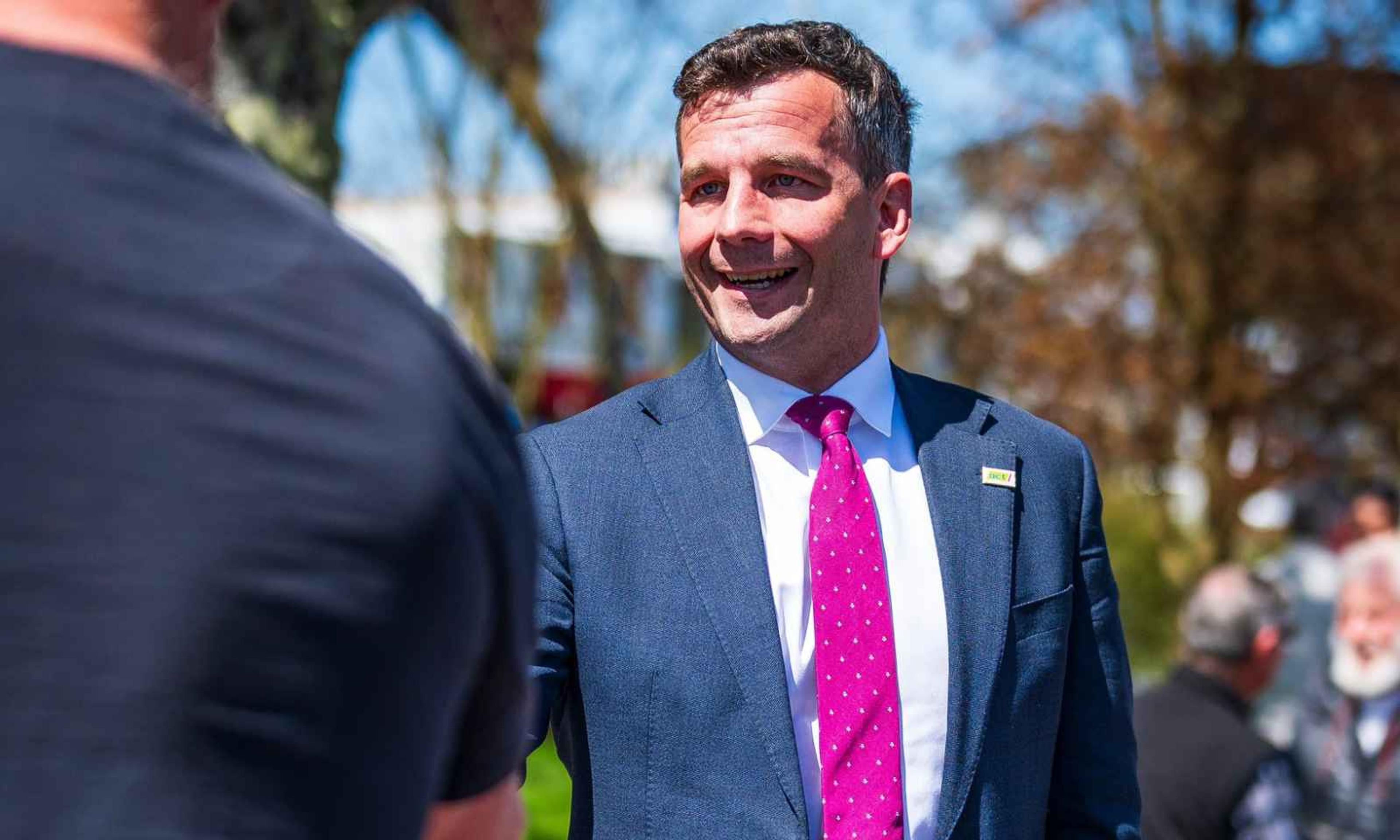
Pacific child poverty rises as Deputy PM points to economic growth as solution

Lantern Festival 2026 tickets sell out, visitors urged to plan ahead

Miss Cook Islands 2026, reflections of a Pacific Island beauty queen

Pacific leaders back NZ kava reforms but warn of risks for smaller businesses in Tonga

Pacific child poverty rises as Deputy PM points to economic growth as solution

Lantern Festival 2026 tickets sell out, visitors urged to plan ahead
Australia’s Pacific aid programme is under the microscope after audit reports showed gaps in oversight and missing documentation.
The concern is that some funds may have been paid without clear proof that the services were actually delivered.
A key example is the Department of Foreign Affairs and Trade’s (DFAT) Pacific Covid-19 Fiscal Budget Support (FBS) package, which provided AU$498 million (NZ$576.17m) to 12 Pacific island countries, including Nauru and the Solomon Islands, between 2020 and 2023.
New Zealand has not released final figures for total aid to the Pacific for the 2024-2025 period. But it is known that the Pacific receives 60 per cent of Aotearoa's total international development cooperation funding.
Some reports suggest a potential reduction in New Zealand's overall aid funding in the coming years, while the country's total Official Development Assistance (ODA) was reported as NZ$1.38 billion in 2024, according to preliminary data from the Organisation for Economic Co-operation and Development (OECD).
Concerns about Australia's Pacific aid efforts intensified this week after an interview on 9News with Derek Elias, a former senior public servant in the Department of Home Affairs. Over two years, Elias oversaw offshore detention contracts for Nauru, and he claims to have witnessed alleged corrupt payments.
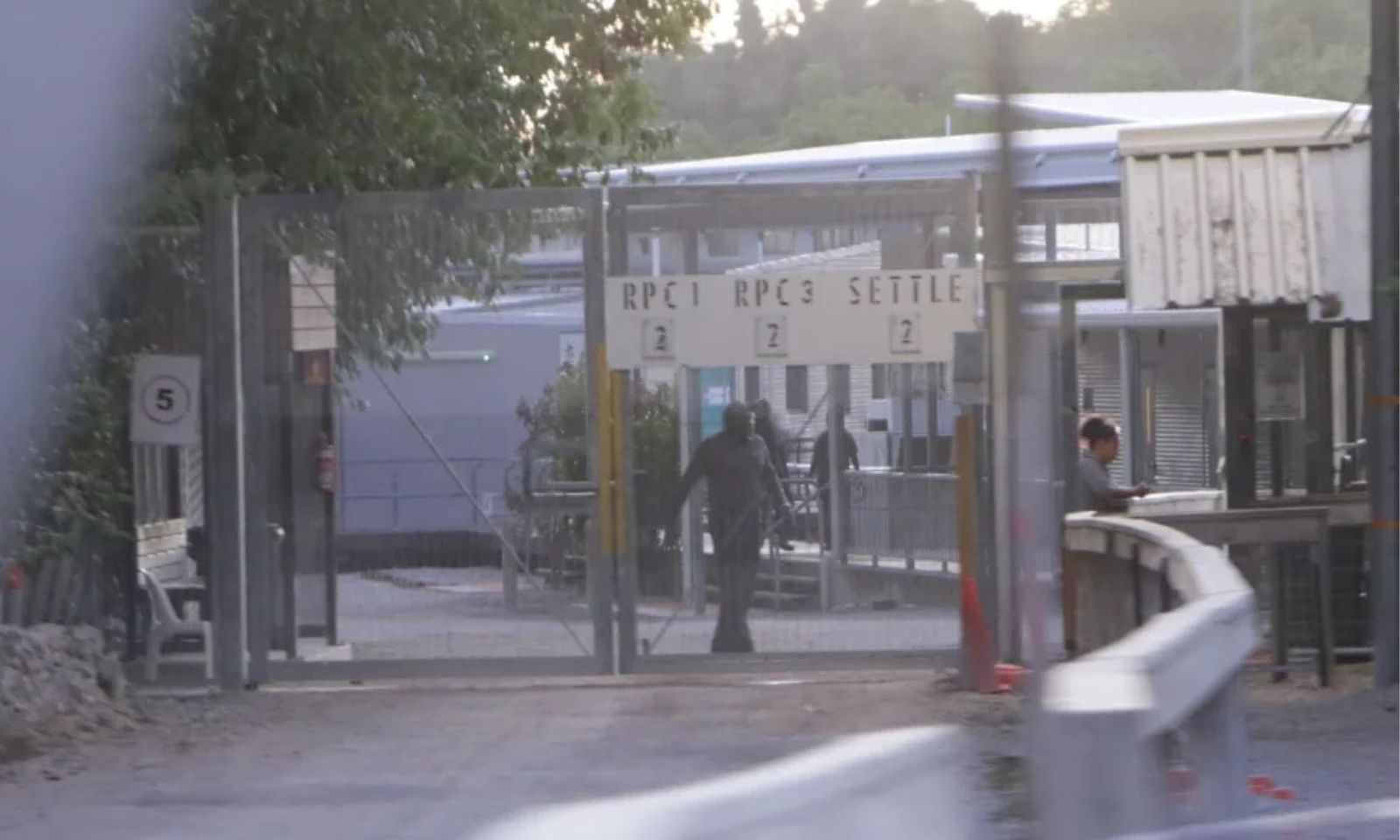
The entrance to the Regional Processing Centre which holds asylum seekers on Nauru. Photo/Caleb Fotheringham
Elias told the network he was disgusted by what he described as “rot and waste” in the asylum seeker regime and says he is now “blowing the whistle”. He insists that Australian taxpayers were paying for services that did not exist.
“Why would I have to apologise or feel guilty about pointing out that we have spent money that we shouldn’t have, and it’s gone to people who put it in their own pockets.
“We created an enabling environment for corruption. We were renewing contracts which were no longer fit for purpose. We were overpaying for services that were no longer required or delivered.”
Elias warned that his revelations from 2019 explain why some firms in Nauru “made a mint on your dime”. He says he risked dismissal or criminal charges for speaking publicly, but insisted, “It’s very important for the public to know how their money has been mis-spent”.
In 2021, Elias walked off the job, took sick leave, and claimed his role had left him a wreck. But he hasn’t stopped agitating the Home Affairs Department, which has returned fire. He has been accused of being dishonest, bearing a grudge, and trying to get a payout. But Elias told the network that he hadn’t done anything wrong.
The Asylum Seeker Resource Centre (ASRC) is demanding answers from the Albanese government after the explosive new whistleblower revelations aired on Australian media on Monday night, exposing corruption, cover-ups, and criminal infiltration at the heart of the country’s offshore detention regime.
While the DFAT’s evaluation found the FBS support helped maintain services and avoid a full fiscal collapse, it also flagged that the “high degree of flexibility” in funding reduced the ability to strictly monitor how the funds were used.
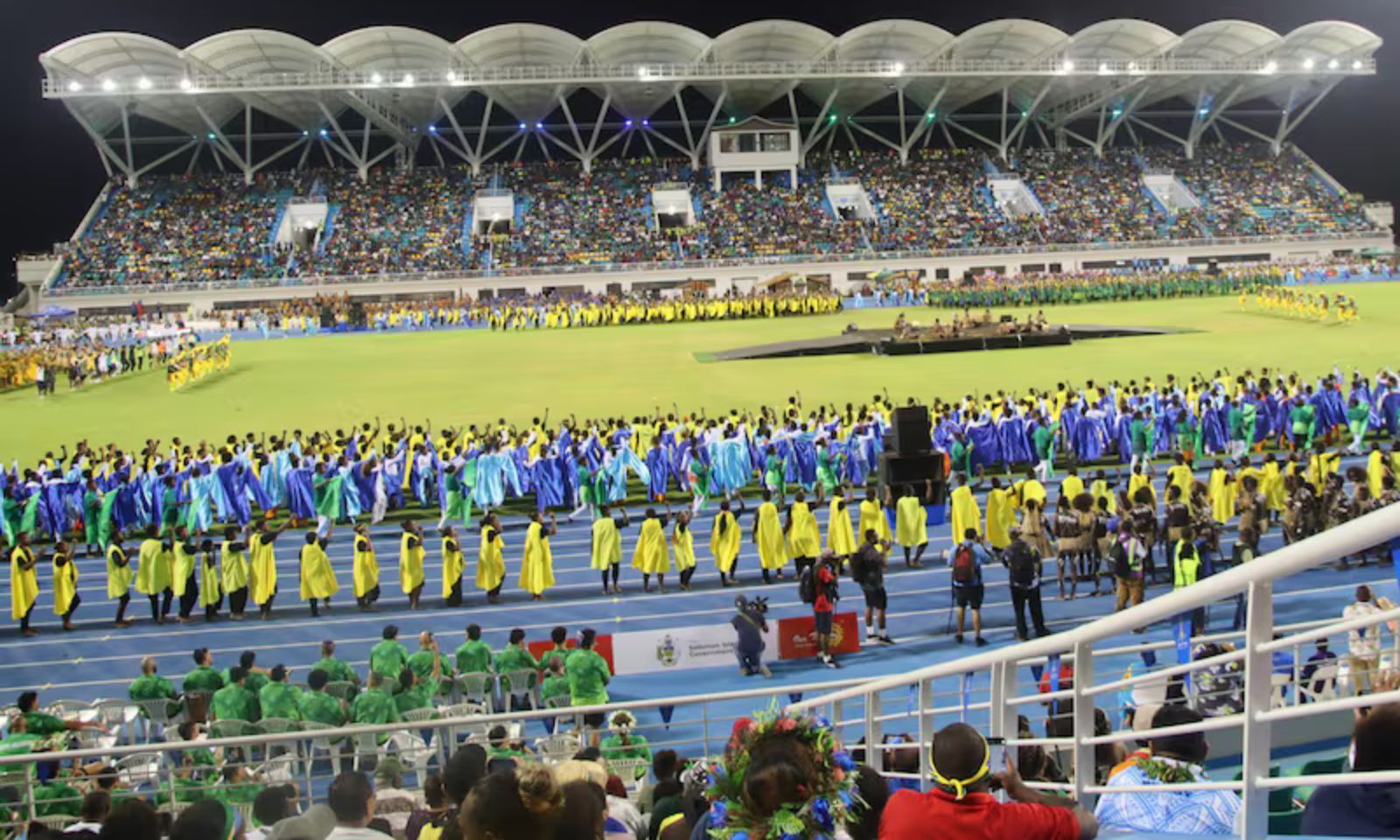
The estimated cost of the 2023 Pacific Games in the Solomon Islands was between US$250m (NZ$442.61m) and US$355m (NZ$628.5m), potentially up to 22 per cent of the country’s 2022 GDP, according to the Solomon Star. Photo/Facebook/Pacific Games 2023
In the Solomon Islands, the hosting of the 2023 Pacific Games has become a focal point for accountability concerns. According to the Solomon Star, documents covering key procurements and payments are reportedly missing or destroyed, including receipts and authorisations auditors consider “crucial” for a full audit.
For example, it reports that the National Hosting Authority (NHA) reportedly has not provided “proper documentation to support certain major procurements”.
The concern now, experts warn, is that when donor funds flow into the Pacific region without clear paper trails, services meant to reach communities may not reach them, eroding trust in governments and the Australia-Pacific relationship.
With global attention on the region increasing, and countries like Australia keen to remain a reliable partner, accountability is no longer just a budgeting issue - it has strategic consequences.
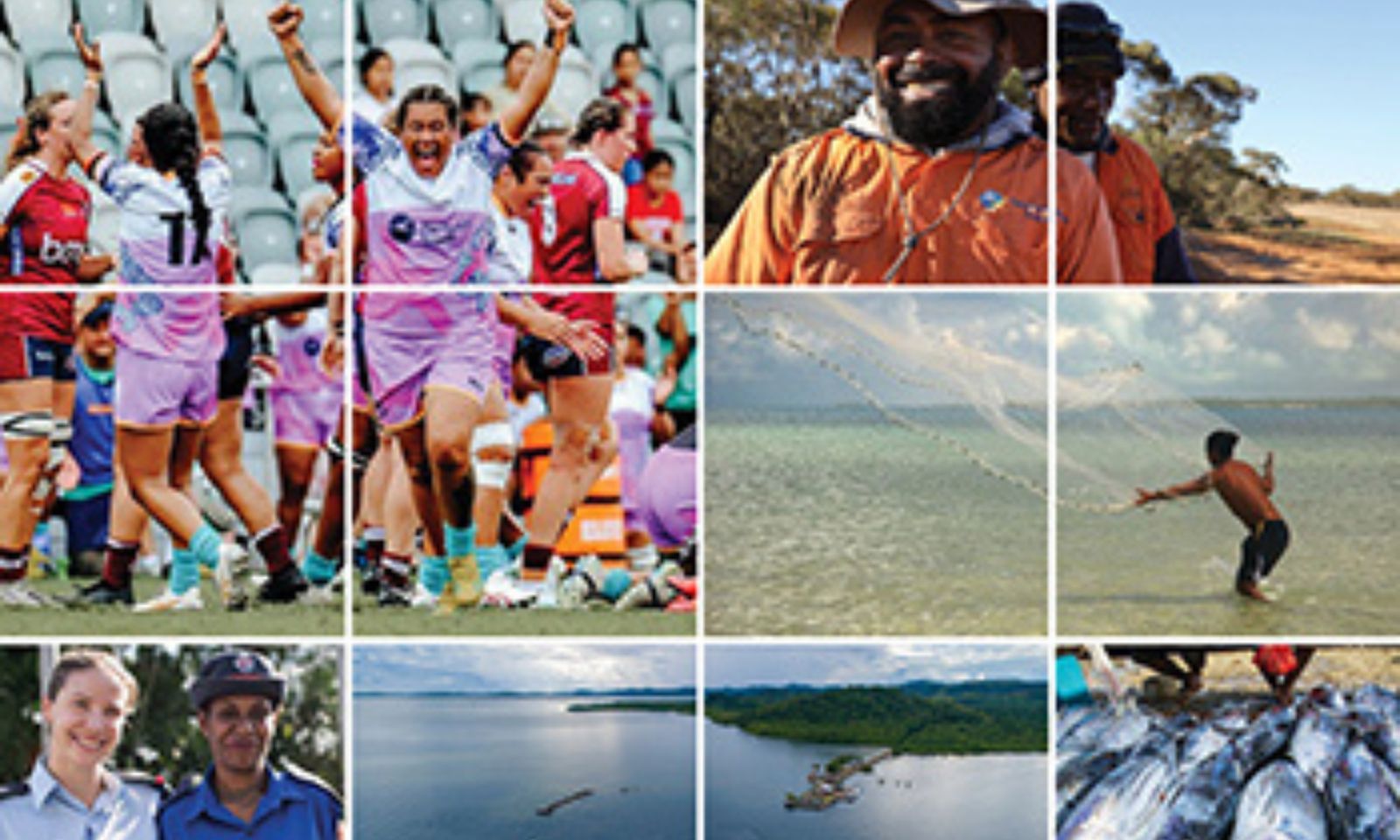
Australia's aid to the Pacific includes support for security, sports, fisheries and seasonal work programmes, among others. Photo/DFAT
DFAT’s evaluation of the FBS programme found it was timely and widely effective in the short term, but reforms and outcomes were only achieved where strong bilateral relationships already existed. The high flexibility of the budget support also meant less ability to trace exact service delivery and outcomes.
In the Solomon Islands, the NHA audit delay is a red flag. The estimated cost of the 2023 Pacific Games was between US$250m (NZ$442.61m) and US$355m (NZ$628.5m), potentially up to 22 per cent of the country’s 2022 GDP, according to the Star.
An In-depth Solomons’ investigation reveals that the auditor-general’s inability to access key documents “remains a concern” and is slowing the delivery of final audit reports.
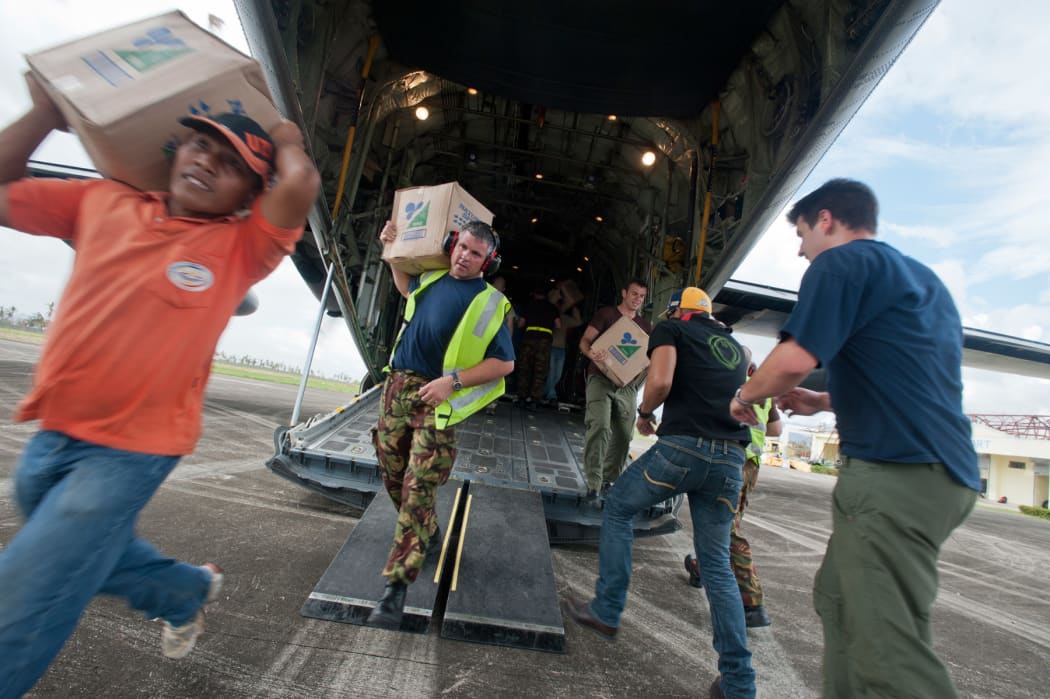
Aid is unloaded from a NZDF C-130 Hercules. Photo/NZDF
For Australia and its Pacific partners:
Donors may insist on tighter auditing and better documentation before releasing funds.
Pacific governments will face greater pressure to show receipts, contracts and evidence that services were delivered.
Communities in the Pacific expect that the support they receive translates into real services, not just money spent.
One analyst states that rather than seeing these accountability issues as a setback, they can be an opportunity for a reset: clearer funding mechanisms, better contract monitoring, and stronger community trust. That’s the path to aid that works.
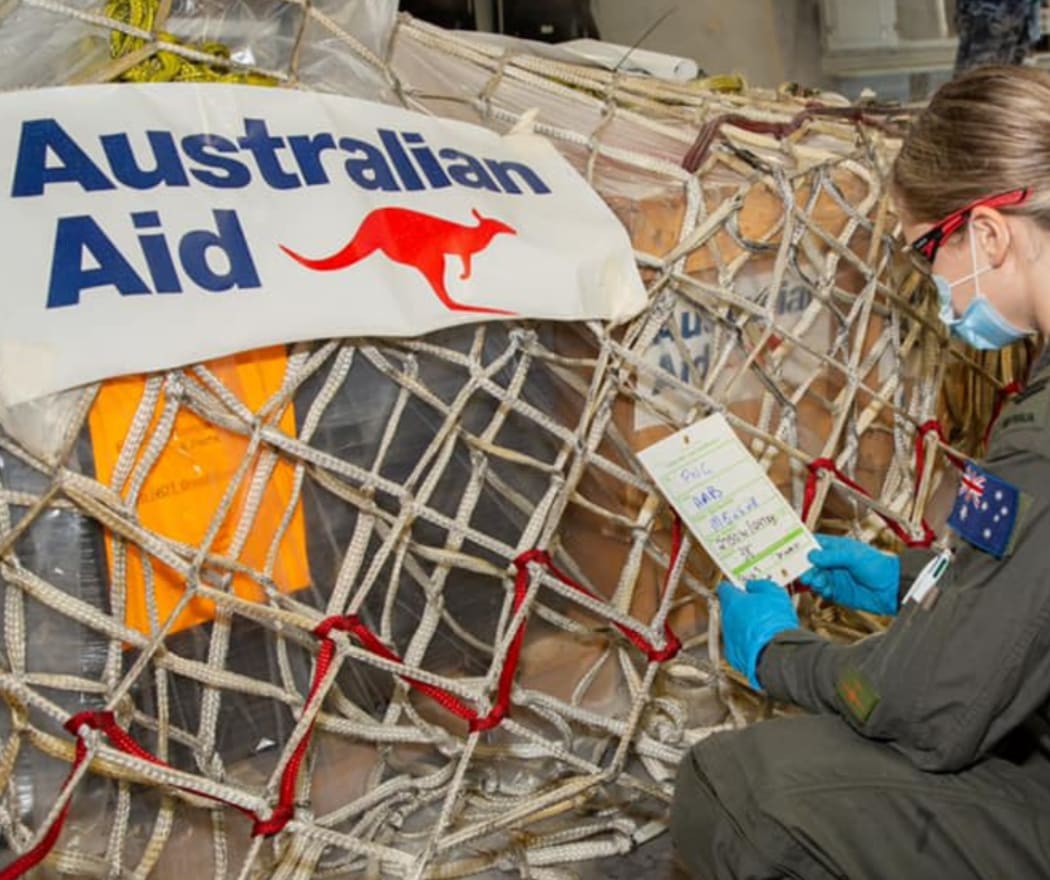
Photo/Australia High Commission, PNG
Australia’s Pacific aid: At a glance
Australia's total aid package to the Pacific for the 2025-26 financial year is AU$2.157 billion (NZ$2.5b). This is a record amount that will support bilateral relationships, provide climate finance, and address other regional priorities.
According to DFAT’s 2024-25 budget summary, Australia’s Official Development Assistance (ODA) to the region is estimated at AU$2.0496 billion (NZ$2.37b) for 2024-25.
A breakdown of ODA by country (2023-24 to 2024-25 estimates) shows:
Fiji - AU$88.1m (NZ$101.94m) to AU$123.1m (NZ$142.45m).
Kiribati - AU$43.4m (NZ$50.22m) to AU$44.0m (NZ$50.91m).
Nauru - AU$46.1m (NZ$53.34m) to AU$46m (NZ$53.23m).
Sāmoa - AU$53.5m (NZ$61.91m) to AU$51.8m (NZ$59.94m).
Solomon Islands - AU$171.3m (NZ$198.22m) to AU$171.2m (NZ$198.10m).
DFAT’s evaluation of the FBS package finds that “the high degree of flexibility of the budget support meant less ability to trace exact service delivery and outcomes in some cases”.
Australia’s plans for 2025-26 include delivering AU$5.097b (NZ$5.9b) in total ODA, with three-quarters directed to the Indo-Pacific region.